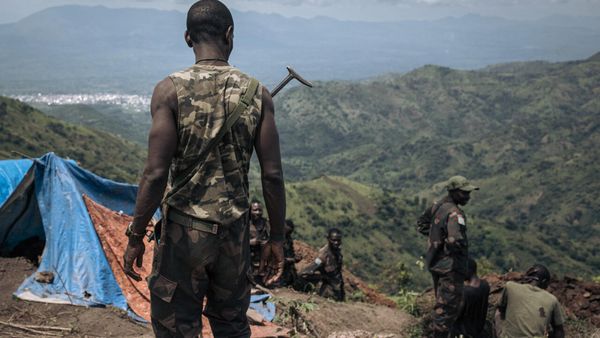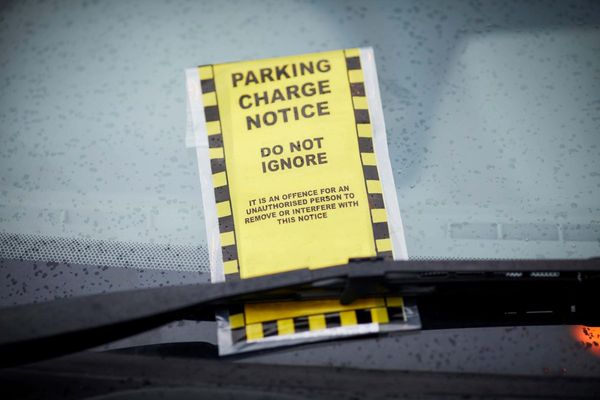WASHINGTON _ A U.S. senator and former presidential candidate said the U.S. military should invade Venezuela if Cuba does not immediately remove its security forces from the country, calling Cuba the Western Hemisphere's version of Iran.
In a Wall Street Journal op-ed posted online Wednesday, Sen. Lindsey Graham, a South Carolina Republican who leads the Senate Judiciary Committee, favorably compared potential military action in Venezuela to the U.S. invasion of Grenada in 1983, an operation that lasted about a week and led to the overthrow of the Caribbean nation's military-run government.
"I think the military option has to be real, I think the ultimate solution is getting Cuba out," Graham said in an interview with McClatchy. "If Cuba goes, Maduro goes and we have a history of standing up to Cuban intervention in the past and this is a defining moment for the Trump presidency in terms of how they deal with Cuba."
Graham's statements are the most specific call for military action in Venezuela from a sitting member of Congress. Florida Sen. Rick Scott has called for the U.S. military to facilitate the delivery of humanitarian aid in Venezuela and a naval blockade of Cuba to cut off the ongoing oil trade between Cuba and Venezuela.
When asked about the scale of military force needed in Venezuela, Graham did not offer specifics but said the goal is "to restore order."
"We're not occupying Venezuela, but if Maduro refuses to go and the Cubans keep using their military apparatus to prop him up, it is in our national security interest to do in Venezuela what Reagan did in Grenada," Graham said.
President Ronald Reagan sent about 6,000 troops to Grenada, an island nation about double the size of Washington, D.C., with a population of about 100,000 people. The weeklong operation in Grenada resulted in the deaths of 20 U.S. troops.
The U.S. invaded Grenada after the country's prime minister was executed in a pro-communist coup. Reagan was worried about the presence of Cubans in the country along with the safety of U.S. citizens living there, mostly medical students. The invasion of Grenada was not supported by the international community.
Venezuela is three times the size of Germany, with a population of about 31 million people, and its armed forces are still controlled by Nicolas Maduro, even though the U.S. and other nations have recognized national assembly chief Juan Guaido as the country's legitimate leader.
"In the 1980s, confronted with Cuban intervention in Grenada, President Reagan intervened militarily, ensuring Grenada didn't become a satellite state of Cuba," Graham wrote. "The U.S. must be willing to intervene in Venezuela the way we did in Grenada. Mr. Trump should tell Cuba to withdraw all security forces from Venezuela immediately. If Cuba doesn't comply, the U.S. should move military assets to the region."
Scott said he supports Graham's position.
"I think that the president can't blink. He's got to understand that he made a commitment to the people of Venezuela," Scott said. "I think this country needs to make a commitment to the people of Venezuela. We have to understand that if we don't get Maduro out and all these bad actors stay, we will have a Syria in our hemisphere and it will be close to our border."
Graham and Scott have a close relationship with Trump and both said the president is willing to make hard choices in Venezuela even though some of the president's advisers have pushed back on pursuing military intervention.
"In a Feb. 18 Miami speech, Mr. Trump declared that he will stand against socialism and for democracy throughout the Western Hemisphere. Now is the time to follow through on that promise," Graham wrote.
Florida Sen. Marco Rubio, who has not explicitly called for military intervention, said in an interview that sanctions are working.
"The existing sanctions and diplomatic isolation is not only in place, it compounds every single day," Rubio said. "Maduro has largely abandoned most of the country to anarchy. For example, outside of Caracas there's no gasoline. He's kind of retrenched back into Caracas to keep control of the capital."
But Guaido's attempt to seize control failed last month, as key military officers and government officials continued to back Maduro. In the interim, Guaido's U.S. representatives have sought to maintain momentum by meeting with U.S. military officials and successfully booting pro-Maduro protesters from the U.S. Embassy in Washington.
"There's a genocide going on," Scott said, using a term that experts say is inaccurate to describe the crisis in Venezuela. "Little kids like my grandkids are dying every day over there because they're starving to death intentionally by Maduro with the support of Cuba, China, Russia, Hezbollah and Iran."






